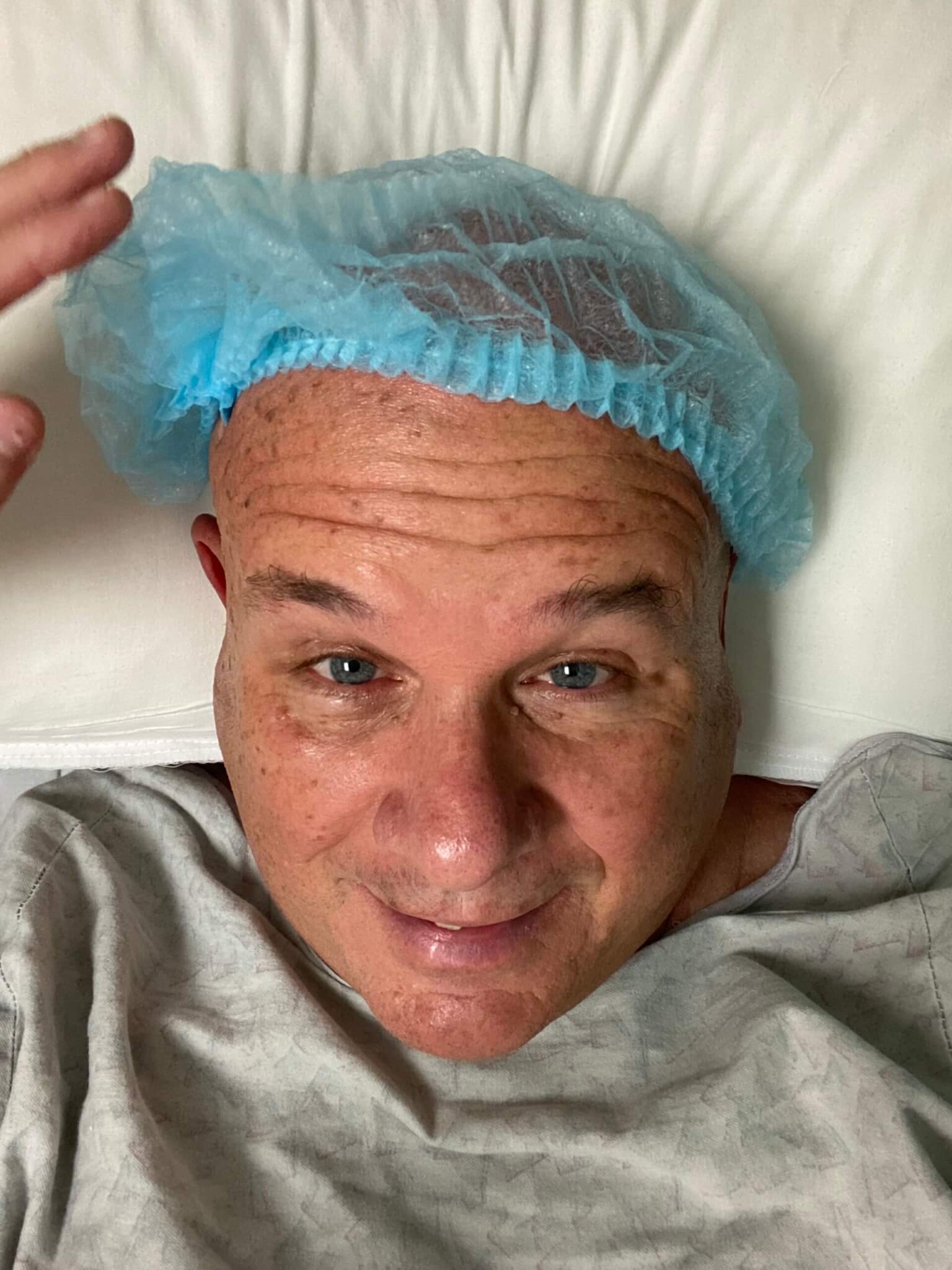These days, I’m fixated on helping broken Christians feel better.
It’s tempting to talk about “in this season of life,” or “my calling,” or other noble-sounding catch phrases. These can become cliche real fast. Seriously, though, I’ve been giving a lot of thought to what I’m supposed to be when I grow up. Helping broken Christians feel better might be part of that equation.
This is all pretty personal. Maybe even therapeutic, and this is my blog, but you don’t have to indulge me. See you next week!
Otherwise … I’m fixin’ to barf all over you.
When I speak of broken Christians, I’m not talking about when God breaks you. That is a separate issue.
I’ve dealt with this before in this blog. Just as a brief takeaway, understand that no matter how much God loves us, no matter what He wants to do for us or how earnestly He seeks to bless us, He cannot do anything with a person who closes his heart in pride, refusing to bend and break.
God has all sorts of ways to turn us into broken Christians – it might be through some soul-shattering crisis, or a gradual erosion of life. I’d suggest that brokenness from God is to be expected. Ancient script says that “The LORD is close to the brokenhearted and saves those who are crushed in spirit” (Psalm 34:18, NIV).
The brokenness I’m speaking of here is the brokenness experienced when, frankly, Christianity isn’t working or delivering for someone.
That sounds sacrilegious, but it’s the reality many live. Maybe even you.
Annoying commercial break. Unless you’ve been under a rock, ignored me, or unfriended me, you know that I’ve developed a heart-driven course dealing with this very thing, Return to Wholeness. The discounted “tuition” ended on September 20, and when it’s officially opened to the public soon it’ll be at the fair market value price.
If you’re interested, though, I can channel Don Vito Corleone and give you “the offer you can’t refuse.” I’ve worried much about coming across like some sleazy salesman, but I’ve come to realize that sales equal service – I’m providing you and others with the very best God has given me. It’s for broken Christians, or those who have broken Christians in their lives.
Here’s the link if you’ve missed it, skimmed by it, or had no idea what I was up to. Significantly, what I’ve discovered is that while the course isn’t for everyone because many are at a good place spiritually, they know someone who isn’t. I’ve encouraged folks to gift the course to someone, or at least pass the link along.
There was also a perfectly lovely article written about the course and me that you can read here for extra credit.
Enough said. Moving ahead to your regularly scheduled programme.
I always thought, on some level, that Christians weren’t supposed to be broken. We’re supposed to be well and whole, right? When times are hard, we pray, knowing God is there to hear our prayers and respond in a way that glorifies Him.
We say things like “the joy of the Lord is my strength,” and mean it because it’s scriptural.
But we don’t feel it. We join the ranks of broken Christians who are fruitless, defeated, and wondering if this walk with Jesus they’re experiencing is what they signed up for.
Honestly – there have been days when I didn’t know if God won, or Satan won. All I knew is that I lost.
You cheered up yet? I got more.
I’ve never been in a crisis of faith place where I doubted the presence of God, or even the love of God. I have wondered what the heck He was up to, and why He was allowing me to live in such an all-consuming funk.
You might identify. It’s like the bottom of your spiritual life has fallen out. You feel like you need to throw yourself on the mercy of God. Maybe you’ve tried.
Or – gasp! – you’ve wrestled with things like this:
- You used to have daily quiet times, now all you can manage is the occasional Bible reading, and it feels rote and hollow.
- You used to have it all together, now the least little thing puts you in a tailspin.
- You used to do so much good church and kingdom work, now all you do is try to avoid it.
- You used to be so balanced and healthy, and now you’re just a step away from being going carnival-ape crazy.
- You used to help so many other people, now all your bandwidth is used up by just trying to get through the day.
Can I simply say you aren’t alone?
Check out Elijah, or David, or even Simon Peter. You are going to find them in some perfectly wretched states. But they didn’t stay broken forever.
I’ve thought a lot about all this, and it comes back to my original statement: I want to help broken Christians feel better.
At the end of this blog*, after my sign-off and below the photo, you can see some of my testimony and what has moved me to the space I’m occupying now. Is this a calling for me? I honestly feel it is.
It’s still a work in progress, no doubt. What encourages me so is that, even at age 66, God moves and inspires and equips me. He’ll equip you, too. As I’ve stated so many times, the reason you and I aren’t dead is because we haven’t completed what God put us here to do in the first place. Encouraging, yes?
So I’ll keep developing courses. I’ll be a full-on pest, because I’ve found I have to be brazen to get folks to even look at what the Lord has provided me. People are busy, and obviously what I’ve offered is a lot more important to me than it is others, just because I know what’s in it. I’m trying to get over feeling like a snake-oil salesman. I’m getting there.
I’ll keep writing this blog. It has been an encouragement to a lot of folks.
I’ll keep curating that Transformational Encouragement group on Facebook. We have over a thousand members, there for each other.
As long as there is breath in me, I’ll finish well because I know I’ve helped broken Christians feel better.
Talk soon! Comments welcome.
Tony

*MY REAL CREDENTIALS
In June of 2018 I suffered a nasty concussion. At first it wasn’t too big of a deal – my eye swelled shut, I had stitches, but it all seemed pretty routine. CT scans and x-rays showed no head or brain damage, but I did have three broken ribs. About a week after the injury, I started getting headaches on the opposite side of my head from the impact site. Overnight I developed a sensitivity to light and sound. There were some cognitive issues – it’s like my brain was shrouded in fog.
Worst of all was the deepest, darkest emotional funk you can imagine. Anxiety, depression, and what I characterized as “a sense of impending doom” became realities. It was/is perfectly awful.
After another round of scans and x-rays, my internist – whom I love much – told me I had post-concussion syndrome (PCS).
No, I’d never heard of it either. All my symptoms were textbook. The cure? Time. I was to be patient. It would “take time.” (I’ve heard that “take time” phrase so many times that I’m afraid the next time I hear it I’m gonna punch someone in the throat.) He also put me on a killer combo of depression/Anxiety meds.
Apparently PCS victims are prone to suicidal thoughts. Praise God that hasn’t been an issue. Since then, I’ve been to a chiropractor, I’ve tried acupuncture (which was actually pretty fun, but it didn’t really help), and talked to a counselor. All well and good. I’ve also been to a neurologist, and that’s been very encouraging. I’d had a migraine headache 24/7 – that was taking its toll – but again, she’s tinkered and experimented with several drugs and danged if the headache is only maybe three times a month. It’s not constant, and when it comes it hits with a vengeance, but it’s so much more manageable.
This incident – which has come in many ways to define my life – comes on the heels of the darndest year ever. Our house flooded and had to basically be gutted; we were displaced for seven months. I had surgery for two benign parathyroid tumors that were messing with my head. I was diagnosed with cancer – renal cell carcinoma. The upside of that one was that the doc went in, got the tumor and a piece of kidney, and I was good to go with no chemo or radiation or any of those nasty things. And our beloved ancient Boston terrier, Teddy, went to doggie heaven.
Why am I sharing this? Simple. My story is your story.
We all deal with challenges, do we not? life is full of joy and heartache in equal measure. Everyone faces something. Many people respond to life with despair, or at least a sense of hopelessness. Well, I am here to stand before you and declare that hopelessness is not an option.











